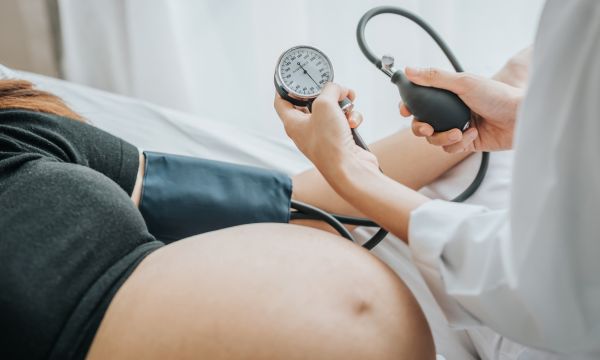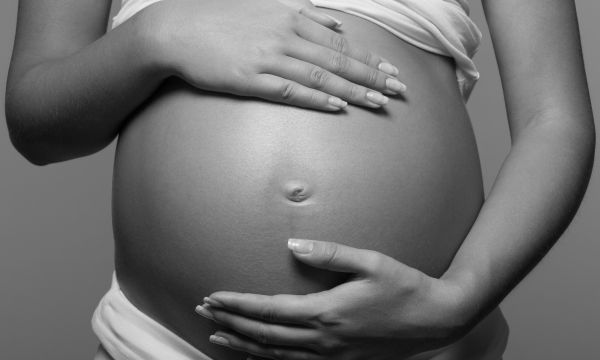High Blood Pressure in Pregnancy: Understanding Gestational Hypertension
High blood pressure during pregnancy is a significant concern, but it doesn’t have to be a cause for panic.
This article is designed especially for expectant mothers who want to better understand this condition and learn how to manage it effectively.
We will discuss the symptoms and causes of high blood pressure, as well as share practical tips to maintain the health of both mother and baby.
With the right information, it is possible to monitor and even prevent high blood pressure, ensuring a calm and safe pregnancy.
Read on to discover how to face this challenge and ensure well-being throughout your pregnancy.
Understanding High Blood Pressure During Pregnancy
High blood pressure during pregnancy, or gestational hypertension, can appear unexpectedly, even in women who have never had hypertension issues before.
Recognizing the signs is crucial to ensuring the health of both mother and baby. Symptoms include:
- Persistent Headaches: Frequent migraines can be a warning sign.
- Blurred Vision: Changes in vision, such as blurriness or flashes of light, should be monitored.
- Swelling in Hands and Feet: While some swelling is common in pregnancy, excessive swelling can indicate hypertension.
The causes of high blood pressure during pregnancy are varied and may include:
- Genetics: A family history of hypertension may increase your risk.
- Lifestyle: A diet high in salt and lack of physical activity are risk factors.
- Stress: High levels of emotional or physical stress can contribute to increased blood pressure.
Understanding these symptoms and causes is the first step in seeking medical help. Early diagnosis and regular monitoring are essential to prevent complications such as preeclampsia.
Do not hesitate to discuss any concerns with your doctor, who may recommend regular exams to monitor your health and that of your baby.
Maintaining open communication with healthcare professionals is fundamental for a safe and healthy pregnancy.
Safe Treatments

High blood pressure in pregnancy(Google Source)
Monitoring high blood pressure during pregnancy is crucial for the health of both mother and baby. Treatment may involve medications prescribed by your doctor, always considering the safety of the fetus.
Additionally, regular blood pressure monitoring is fundamental.
- Medication: Only under medical guidance, to ensure safety.
- Monitoring: Regularly check your blood pressure at home.
- Consultations: Stay in frequent contact with your doctor for treatment adjustments.
Every pregnancy is unique, and what works for one person may not be ideal for another. It is important to follow your doctor’s recommendations and not make any changes to your treatment on your own.
Open communication with healthcare professionals is essential for effective control of high blood pressure during pregnancy.
Healthy Lifestyle: Tips to Prevent High Blood Pressure During Pregnancy
Preventing high blood pressure is possible with some lifestyle changes. Staying active and relaxed can make all the difference. Here are some practical tips:
- Light Exercise: Moderate physical activities, such as daily walks, are excellent for keeping the body active and healthy. They help improve circulation and control weight, important factors in preventing hypertension.
- Balanced Diet: Adopting a diet rich in fruits, vegetables, and whole grains provides the essential nutrients the body needs to function well. Reducing salt intake and avoiding processed foods is also crucial.
- Hydration: Drinking plenty of water throughout the day helps keep the body hydrated and can help regulate blood pressure. The recommendation is to consume at least 2 liters of water daily.
- Quality Sleep: Ensuring good nights of sleep is fundamental for overall health. Adequate rest helps regulate stress levels and maintain stable blood pressure.
Avoiding stress is also fundamental. Relaxation techniques, such as meditation and yoga, can be beneficial.
Maintaining a healthy lifestyle not only helps prevent high blood pressure but also improves overall well-being during pregnancy. Remember to consult your doctor before starting any new physical activity.
Essential Care: What to Do After Diagnosis
If high blood pressure has already been diagnosed, following specific care is crucial. Here are some guidelines:
- Medical Follow-Up: Do not miss appointments and follow your doctor’s instructions.
- Pressure Diary: Keep a daily record of your blood pressure levels.
- Salt Reduction: Avoid processed foods and those high in sodium.
- Adequate Rest: Prioritize rest periods throughout the day.
These precautions help prevent complications and ensure that the baby’s health is not compromised. It is important to maintain open communication with your doctor and report any new or concerning symptoms.
Small changes in daily life can significantly impact the management of high blood pressure during pregnancy.
Nutrition and Well-Being: Nutrients that Help Monitor Blood Pressure

High blood pressure in pregnancy(Google Source)
Diet plays a crucial role in controlling high blood pressure, especially during pregnancy.
Incorporating specific nutrients into your diet can not only help keep blood pressure under control but also promote the overall well-being of both mother and baby. Here are some essential nutrients and foods:
- Potassium: Found in foods like bananas, potatoes, spinach, and avocados, potassium helps regulate blood pressure levels by promoting fluid balance in the body.
- Omega-3: Fatty acids present in fish like salmon, sardines, and tuna, as well as flaxseeds and chia seeds, omega-3 is known for its anti-inflammatory properties, which can help reduce blood pressure.
- Magnesium: Essential for cardiovascular health, magnesium can be found in whole grains, nuts, seeds, and leafy green vegetables, helping to relax blood vessels and improve blood flow.
- Calcium: Important for bone and cardiovascular health, calcium is present in dairy products, tofu, and leafy green vegetables, contributing to blood pressure regulation.
- Fiber: Foods rich in fiber, such as oatmeal, beans, lentils, and fruits, help maintain heart health and can aid in reducing blood pressure.
Maintaining a diet rich in fruits, vegetables, and lean proteins is essential. Additionally, avoid processed foods and refined sugars.
A balanced diet not only helps control high blood pressure but also provides the energy and nutrients necessary for the healthy development of the baby. Consult a nutritionist for a personalized dietary plan.
Final Considerations
Dealing with high blood pressure during pregnancy can be challenging, but with the right information and care, a healthy pregnancy is possible.
Stay informed, follow medical advice, and don’t hesitate to seek support when needed. Your health and your baby’s are priorities.
With these tips, we hope you feel more prepared to face any challenges that high blood pressure may bring during pregnancy.
 The Importance of Sleep for Baby Development
The Importance of Sleep for Baby Development
If you are in sweet waiting, surely someone must have already told you to take advantage of every minute you have available now to rest! Ad […]
Keep reading From Dream to Reality: Planning the Perfect Wedding
From Dream to Reality: Planning the Perfect Wedding
How to Organize an Unforgettable Wedding: Complete Guide for Your Big Day. Ad Wedding is one of the most important and exciting moments in a couple’s […]
Keep reading Preparing for Childbirth: Tips for Preparing for the Arrival of the Baby
Preparing for Childbirth: Tips for Preparing for the Arrival of the Baby
From the moment we learn that we are expecting a baby, our life is filled with many emotions. Ad Our body begins to undergo transformations to […]
Keep reading